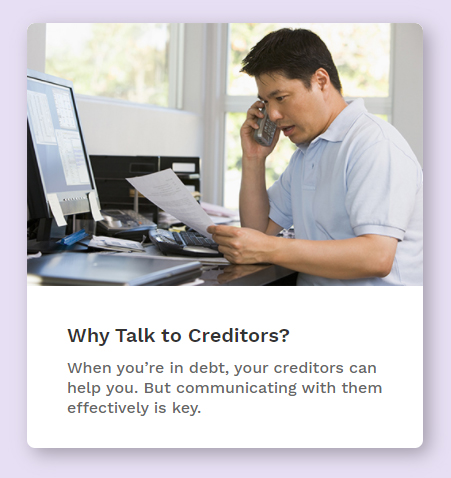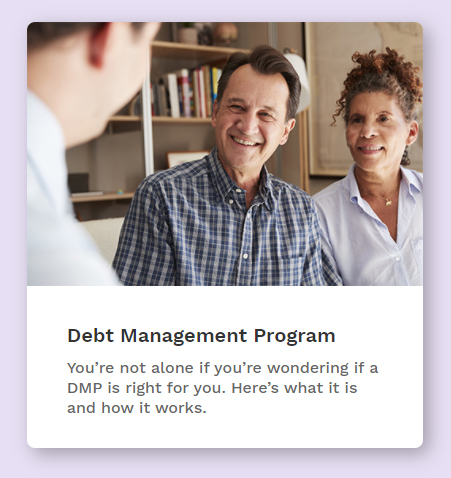How to Deal with Debt As a Gig Worker with
Inconsistent Income
By Carmen Chan
Flexible hours, freedom to choose your own projects, and picking up new skills along the way – there are numerous benefits of being a gig worker. But are you having a hard time paying off debt with an irregular pay cheque? Or maybe you want to get ahead of your income potentially being impacted by Trump’s threatened tariffs and the affects they could have on Canada’s economy.
As many as 871,000 Canadians aged 15 to 69 categorize themselves as a gig worker, including 624,000 people who are self-employed, according to 2024 data from Statistics Canada. About 1.5 million people across the country say they’d completed gig work at some point in the year.
In a nutshell, gig work is a defined as short-term jobs, tasks, or “gigs” that don’t fit within the constructs of a full-time job, hours, and set salary. They come with a variety of skills – think freelance graphic designers, dog walkers, Uber drivers, and temporary workers.
But gig work comes with its fair share of challenges, such as fluctuating income, inconsistent work hours, and a lack of traditional benefits – in addition to no guarantee for future work. These conditions can make it tricky for managing personal finances, especially if you’re trying to budget and pay off debts.
So how do you pay off debt as a freelancer? With the right strategies, it’s entirely possible to balance your budget and debt as a gig worker. Here’s a look at top strategies for managing money with an irregular income.
Calculate Your Monthly Expenses and Required Income
While your income may fluctuate from month to month, your fixed expenses won’t. List all of your bills, from your mortgage/rent, car payments, debt repayments, and utilities to get a clear picture of your monthly outgoings. Look back at the past three to six months to figure out how much you typically spend on your transportation, groceries, and other variable expenses.
With a solid understanding of how much your monthly living costs are – and how much you need to dedicate to minimum payments for your debts and contributions to your emergency savings account, you’ll know precisely how much you need to earn as a gig worker.
Do You Think of Savings as An Important Expense?
Put Money Aside for Taxes
As a gig worker, it can be tempting to make use of your entire pay cheque as available income, but bear in mind, you’ll need to factor in saving a portion for paying taxes. Financial planning for freelancers includes determining what percentage you should set aside for taxes – and siphon that amount off each month into a separate bank account. This step ensures you aren’t caught empty-handed when it comes to tax season.
It’s worth doing your research for various tax deductions as a gig worker. Some freelancers can recoup costs for vehicle expenses and gas, home office costs, and buying tools and materials for their projects. Hang onto receipts and invoices and consult a tax professional to max out the benefits for your refund.
File Taxes DIY or Hire a Pro? Learn More
Make Debt Your Top Priority
List all of your debts, spanning credit cards, student loans, lines of credit, family who helped you start your gig or get by when your income dropped – and any other loans, making note of balances, interest rates, and minimum payments. Create a debt repayment plan that suits your situation – that could mean automating minimum payments, calling your creditors to make due dates on the same day, or consolidating multiple credit cards onto one with a low interest rate so you aren’t juggling numerous accounts.
Ensure you’re making at least the minimum payment on your debts but aim for siphoning off a third of your gross income towards your debts to pay them off faster. By making debt payments your top priority you’ll be in a better position to get by if your income goes down due to tariffs or other economic slowdowns.
Fixed, Savings, and Variable Costs – How to Budget Money Properly
Build a Buffer for Slower Months
Gig work will ebb and flow in most industries – you might be incredibly busy creating products or delivering goods in the lead up to Christmas while the New Year will see business screech to a halt, for example. Prepare for this eventuality by creating a buffer account to help you through these slower months when your income may decrease.
If the latter half of the year is the busiest time for your line of work, don’t splurge away your excess income. Stash it away in savings pots to cover your expenditures during the quieter months, and create another account for short- and long-term goals like paying off debts or saving for a new car. Keep in mind, you won’t earn an income during periods of vacation and sick days, so you’ll need savings for a rainy day, too. If you think ahead, you won’t dig further into debt in the face of emergencies.
Free Webinar – Learn How to Manage Irregular Income
Avoid Taking On New Debt
Living with inconsistent income can make some people anxious and worried about their debts. The best way to combat these feelings is to stay disciplined and stick to your budget and debt repayment plan. When work is abundant and your income is higher, put the extra windfall away to pay off debts and bump up your savings.
Don’t get into the habit of turning to your credit card, line of credit, pay day loans, or any other debt products that may keep you in the red longer. If you need to, remove these accounts from your digital wallet and keep your credit cards at home so they aren’t within easy reach.
Getting Paid Every Day Can Make It Hard to Budget and Save
Consider a Debt Management Program
If your variable income and multiple due dates are making it difficult to stay on top of your debt repayments, you have many debt help options to gain control of your finances. Some people contact their creditors to negotiate a lower interest or even an interest-free grace period while they regain their bearings. Others research options to consolidate their debts into a single lower-interest loan.
Another option is a debt management program. In this case, you’ll work with one of our professional credit counsellors, who will walk you through your options to decide if a DMP is your best course of action. If it is, your counsellor will act as a mediator between you and your lenders, grouping all of your unsecured debt payments, like your credit cards, payday loans, overdrafts, personal loans, and lines of credit, combining them into a single payment so you can focus on paying what you owe. Your creditors support the program by waiving or reducing ongoing interest charges.
Paying Off Debt & Managing Your Budget As a Gig Worker is Entirely Manageable
Whether you’re self-employed, doing temporary work, or picking up multiple jobs to pay the bills, you can pay off debt and build savings as a gig worker. Consistency is key – work hard, stick to your repayment plan, and don’t add more to what you owe. This will also help protect you if there’s fallout to your industry from any tariffs the United States imposes on Canada. If you need financial advice or just have some questions, we’re only a call away. We can set up a free, confidential appointment to review your situation. Canadians with all kinds of employment terms have been coming to us since 1996. We’ll help you with everything from creating a budget to managing your debts and learning how to communicate effectively with your creditors. There are no hidden fees, fine print, or strings attached.







